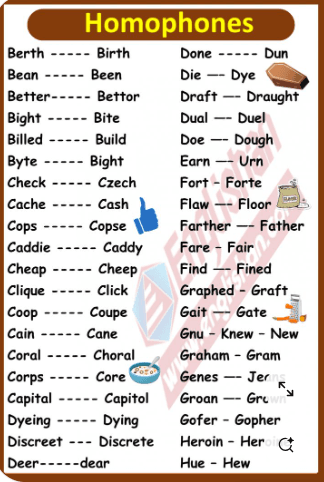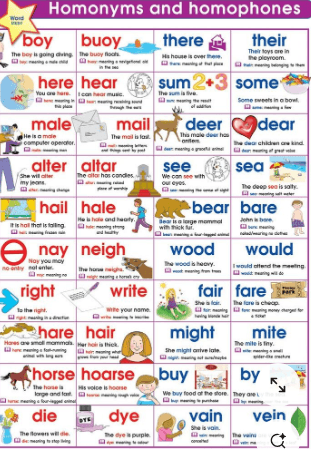Introduction:
English is full of confused words that sound alike, look similar, or have meanings that seem interchangeable. These confused words can make writing tricky and lead to misunderstandings if used incorrectly. Whether you’re a student, professional, or language enthusiast, mastering these confused words will improve your communication skills and help you avoid common mistakes. In this guide, we will break down the most frequently confused words, explaining their meanings and proper usage with examples.

20 pairs of similar words with their key differences:
- Been vs. Being – “Been” is the past participle of “be” (used with “has/have”), while “Being” is the present participle (used for continuous tenses).
- Example: I have been to London. / She is being rude.
- Affect vs. Effect – “Affect” is a verb meaning to influence, while “Effect” is a noun meaning the result of a change.
- Example: The news affected me. / The new rule had a big effect.
- Advice vs. Advise – “Advice” is a noun (guidance), while “Advise” is a verb (to give guidance).
- Example: He gave me good advice. / I advise you to be careful.
- Their vs. There vs. They’re – “Their” shows possession, “There” indicates a place, and “They’re” is a contraction of “They are.”
- Example: That is their book. / The park is over there. / They’re coming soon.
- Lay vs. Lie – “Lay” means to put something down (requires an object), while “Lie” means to recline (no object needed).
- Example: I lay the book on the table. / I need to lie down.
- Principal vs. Principle – “Principal” refers to a leader or the main part of something, while “Principle” means a fundamental belief or rule.
- Example: The school principal made an announcement. / Honesty is an important principle.
- Compliment vs. Complement – “Compliment” is a nice remark, while “Complement” means something that completes or enhances.
- Example: She gave me a compliment on my dress. / This wine complements the meal.
- Stationary vs. Stationery – “Stationary” means not moving, while “Stationery” refers to writing materials.
- Example: The car remained stationary. / I bought new stationery for school.
- Elicit vs. Illicit – “Elicit” means to draw out a response, while “Illicit” means illegal or forbidden.
- Example: The joke elicited laughter. / He was involved in illicit activities.
- Farther vs. Further – “Farther” refers to physical distance, while “Further” refers to figurative or additional distance.
- Example: He ran farther than me. / We need to discuss this further.
11. Ensure vs. Insure – “Ensure” means to make sure something happens, while “Insure” refers to protecting against financial loss.
- Example: I will ensure that you arrive safely. / I need to insure my car.
- Imply vs. Infer – “Imply” means to suggest something indirectly, while “Infer” means to deduce from the information given.
- Example: He implied that he was unhappy. / I inferred from his tone that he was upset.
- Loose vs. Lose – “Loose” means not tight, while “Lose” means to misplace or not win.
- Example: My shirt is too loose. / Don’t lose your keys.
- Historic vs. Historical – “Historic” means something significant in history, while “Historical” relates to anything from the past.
- Example: The signing of the declaration was a historic event. / I love reading historical novels.
- Accept vs. Except – “Accept” means to receive or agree, while “Except” means to exclude.
- Example: I accept your apology. / Everyone came except John.
- Among vs. Between – “Among” is used for three or more things, while “Between” is for two things.
- Example: She walked among the trees. / The secret is between you and me.
- Conscience vs. Conscious – “Conscience” refers to a sense of morality, while “Conscious” means being awake or aware.
- Example: His conscience told him to apologize. / She was barely conscious after the accident.
- Eminent vs. Imminent – “Eminent” means famous or respected, while “Imminent” means about to happen.
- Example: He is an eminent scientist. / A storm is imminent.
- Assure vs. Ensure vs. Insure – “Assure” means to give confidence, “Ensure” means to make certain, and “Insure” means to protect financially.
- Example: I assure you, everything is fine. / We must ensure safety. / He insured his house.
- Persecute vs. Prosecute – “Persecute” means mistreating someone unfairly, while “Prosecute” means taking legal action against someone.
- Example: Many were persecuted for their beliefs. / The lawyer will prosecute the case.
- Discreet vs. Discrete – “Discreet” means careful or secretive, while “Discrete” means separate or distinct.
- Example: She was discreet about the surprise. / The data was divided into discrete categories.
- Device vs. Devise – “Device” is a noun referring to a tool or gadget, while “Devise” is a verb meaning to plan or invent.
- Example: My phone is a useful device. / We need to devise a new strategy.

Conclusion:
Understanding and correctly using confused words is essential for clear and effective communication. Recognizing the differences between these confused words, you can enhance your writing, avoid embarrassing errors, and sound more confident in English. Keep practicing, and over time, these tricky confused words will become second nature. Next time you come across a pair of confused words, take a moment to check their meanings and use them accurately!
Click on the link below to learn more and build the confidence you need.
https://fluent-eng.com/20-important-workplace-and-interview-idioms/

